The economics of human flourishing
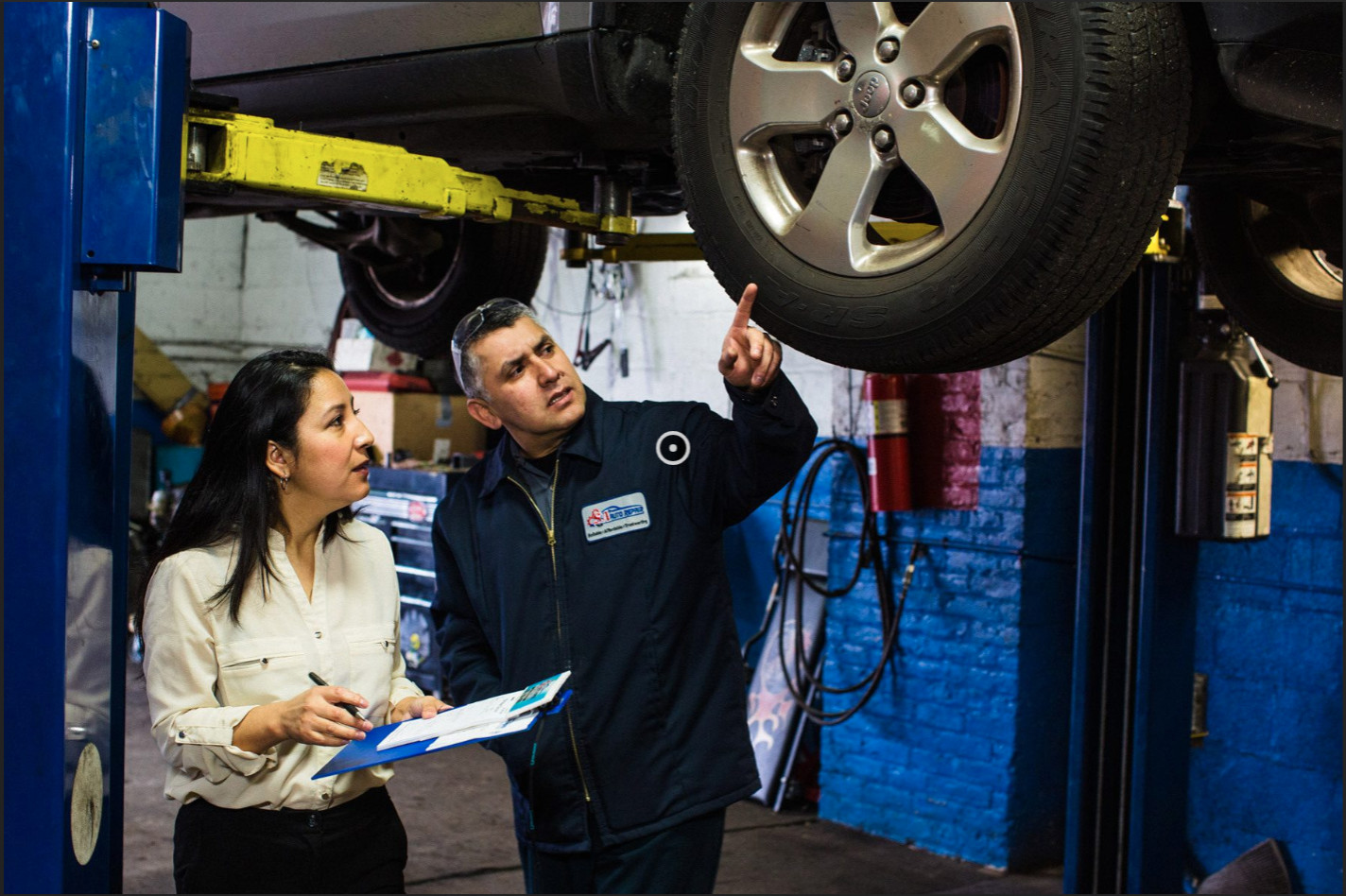
An exponential spirit is sparking in Jersey City. Off the southeast waterfront, the Statue of Liberty carries the torch—promises of refuge and hopes of rising. What better place for a groundswell of problem-solvers equipped with integrity and educated on cash flow.
90 percent of entrepreneurs in the program are minorities, 71 percent are women, and nearly all of them enter the program with full-time employment. In fact, the average entrepreneur at Rising Tide Capital (RTC) is a 40-year-old mother of two earning less than $38,000 per year. I read that in a brochure while Myani Lawson tucks Sarai, her precious sleeping eight-month-old, in tighter to her chest as we sit for an interview.
Myani was looking for an affordable and diverse Montessori school option for her first daughter, Leila—not finding one, she started her own. Java and Michelle were concerned for over-full landfills, so they started a compost service to help people not waste their waste. Edna and her son, Qasim, needed a more flexible way to make ends meet for their family, so they built a business around their shared expertise keeping hot pipes hot and cold pipes cold. Hilda and Jose saw one too many women taken advantage of by mechanics and started a different kind of auto repair shop—an empowering one with respect and trust at the center.
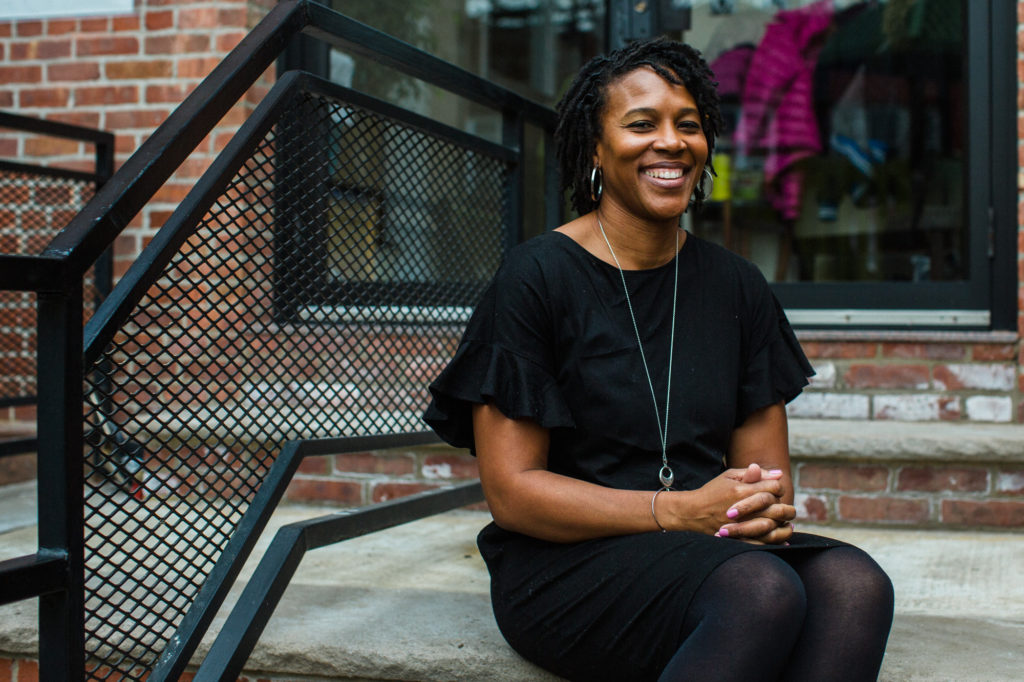

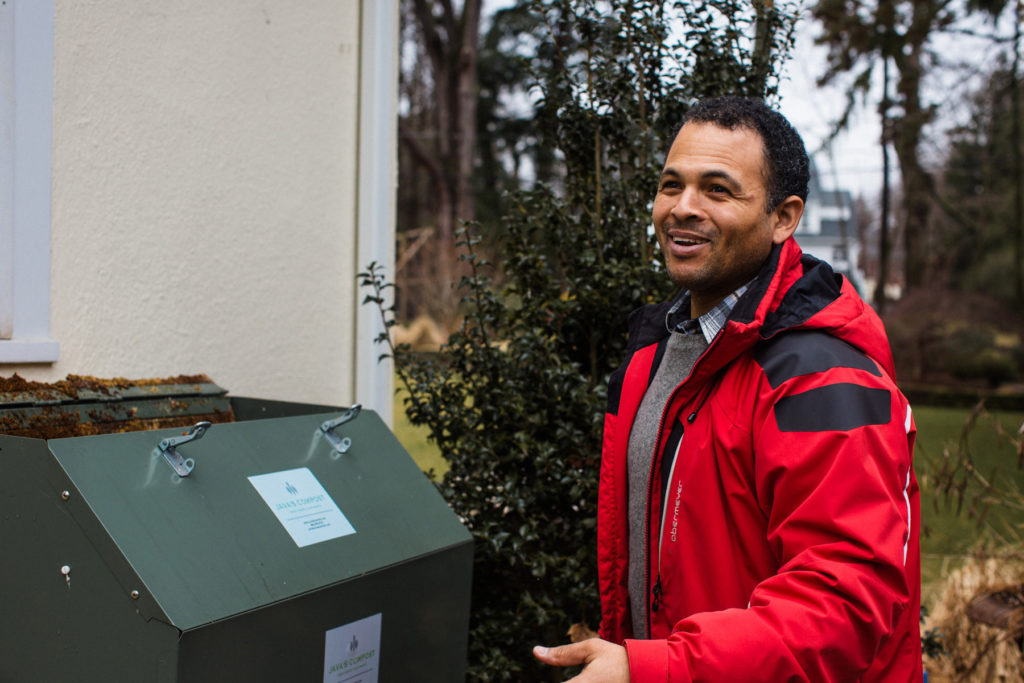
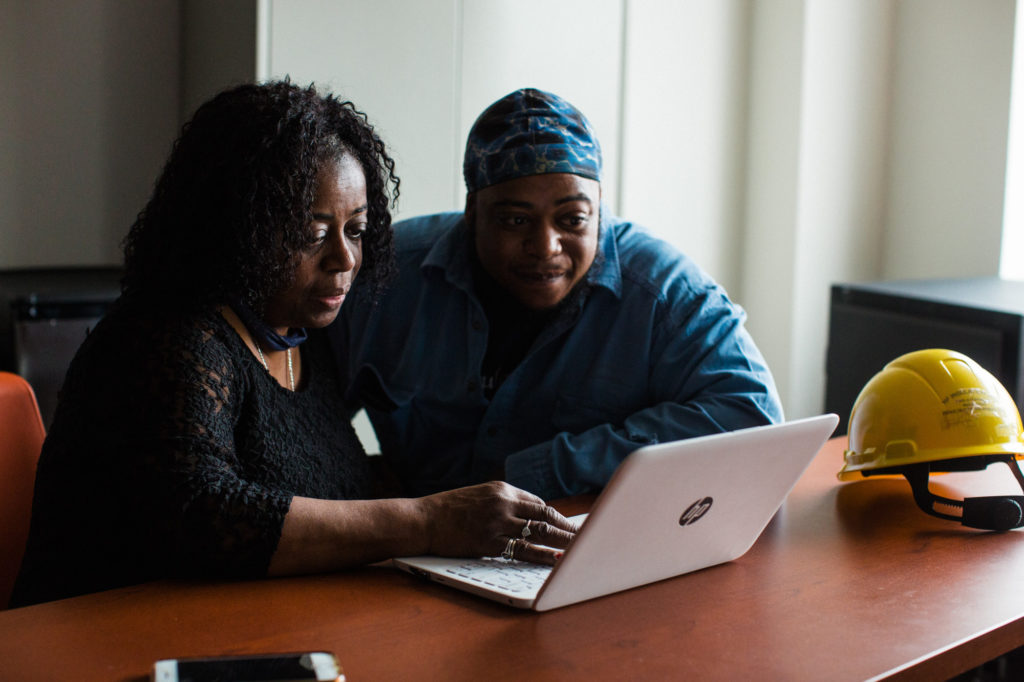
A slow and steady swell over the past fifteen years, Rising Tide has lived up to its name 2,600 times over. From compost-churning to candle-making, school-building to pipe-insulating, dreams translate to business plans, business plans grind into balance sheets, and balance sheets build into legacy.
“Entrepreneurs are primarily problem-solvers,” says Esther Fraser, who has witnessed the journey of many hundreds of RTC entrepreneurs over the past ten years. “What better way for a community to heal than to have the people in the community say, ‘This is what we need, and I’m not waiting for anybody to provide it. I’m going to create it. Yes, I’m making money, but also I’m benefiting the people who live here.”
In 2017, RTC entrepreneurs opened a business every three days and created 420 new jobs.
Proving that entrepreneurial vision and grit aren’t relegated to a certain race, gender, ethnicity, first language, marital status, class, or education-level, Rising Tide’s signature Community Business Academy is incredibly diverse and intentionally so.
“One of the core beliefs that Alfa and I had when we started Rising Tide Capital was the idea of the infinite value of each and every person,” explains Alex Forrester, Co-Founder of Rising Tide, “in many ways the world isn’t organized that way, and we see the consequences of that.”
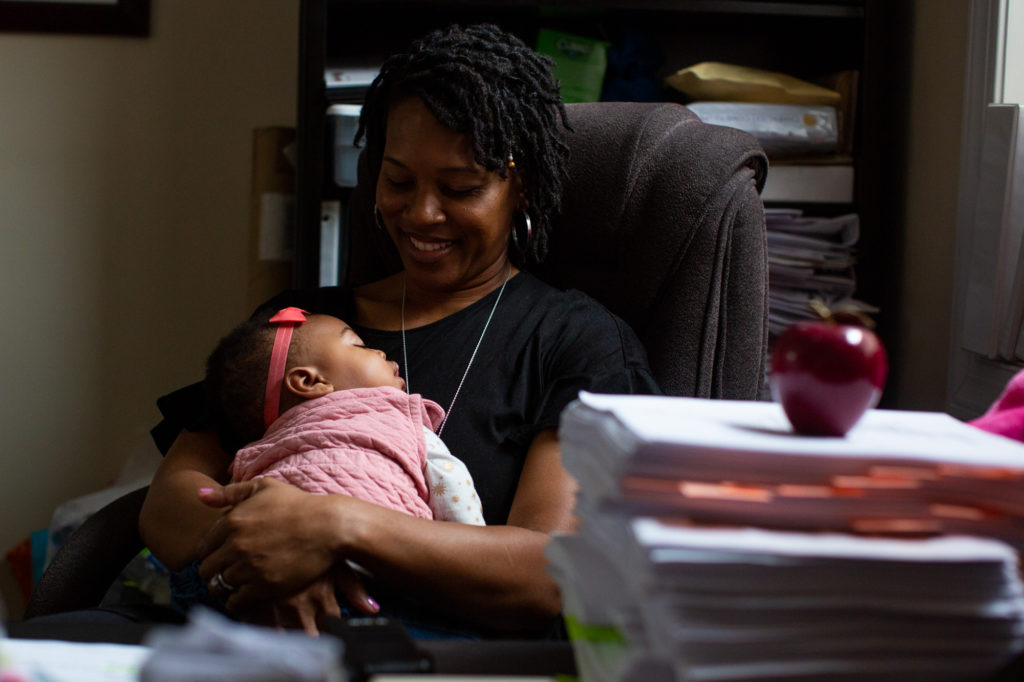
We’ve got 2,600 entrepreneurs from Rising Tide Capital who have come to the CBA. We have 600 in Chicago through our partner, Sunshine Enterprises. So we’ve got over 3,100 people who have had at least a baseline experience of the work that we do,” says Chris Breitenberg, Director fo National Partnerships.
“We’re nourishing riverbanks that we may never get to see, and we certainly won’t get to measure,” says Alex. “It occurs at the emotional, spiritual, and psychological life of a family—the situation that children are growing up in; households that are either secure or insecure, whether they have hope or are spinning, living from paycheck to paycheck and one car breakdown away from missing a rent payment and everything that cascades around that.”
The stories you’re about to read are only a handful of thousands I could’ve picked from, each exemplifying the emanating effect of entrepreneurialism in a community—disrupting cycles of instability and scarcity, solving some of our greatest challenges at the smallest scale. I used to think, in the Rising Tide analogy, the entrepreneurs were the boats rising, but now I realize they are the tide, lifting many others.
“What I’ve decided is that the work of connecting business and economic freedom and aspiration to community and belonging is the most important work of our lifetime.”
Alfa Demmellash
Co-Founder, Rising Tide Capital
Equipping Solvers
I agree with Esther—entrepreneurs are problem-solvers first and foremost. While profit is essential to make the wheels go ’round and allow for growth, it’s rarely the primary motivation. Every entrepreneur I’ve ever talked to has spoken of the grit, determination, and sheer willpower required to gut it out through the long challenges and intense 24/7 responsibility of running a business.
A school teacher, mother, and now entrepreneur, Ms. Myani feels this acutely. When her first daughter turned two, Ms. Myani started exploring schools. “I was looking for a diverse school,” she explains. “Jersey City is a very diverse city, but our schools tend to be segregated. I didn’t want this for my daughter. I wanted her to be in a school that’s economically diverse, ethnically diverse, racially diverse, and also ability diverse. I wanted her to also have exposure to the Montessori method, but Montessori schools tend to be very expensive.”
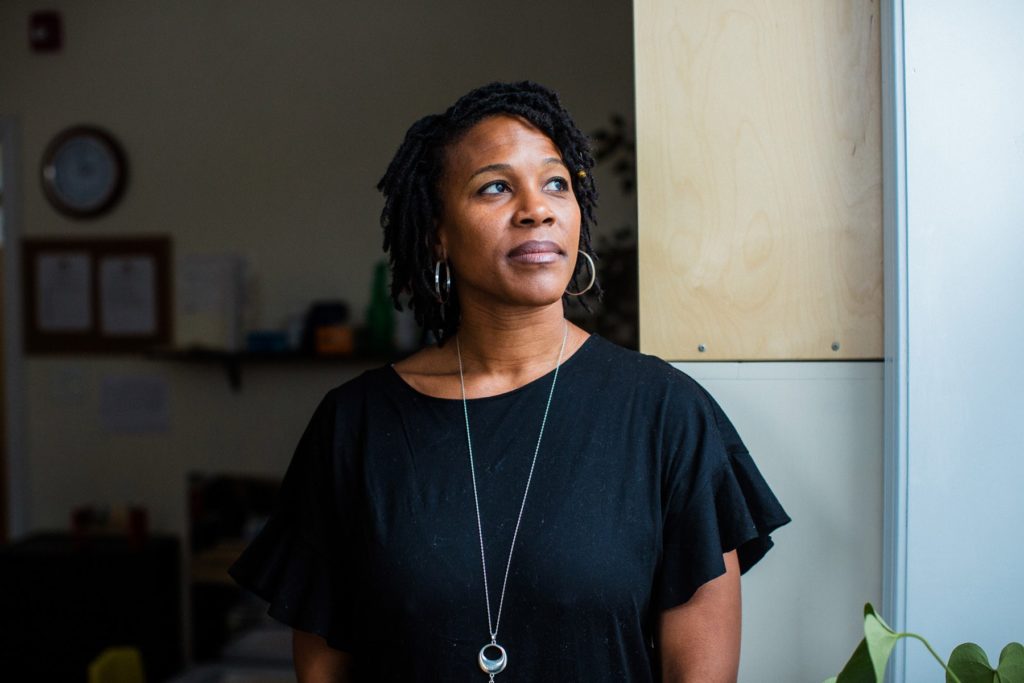
Long story short, she never found what she was looking for, so in 2014 Ms. Myani bit the bullet and opened a school herself: “Opening a school definitely is a lot different than what I thought it would be—you have to run it as a business. For me that was a very hard stretch because I’m a teacher. I’m like, ‘What do you mean this is a business?!’ But my business coach from Rising Tide helped me realize that, if you want to do anything for anyone, if you want to help any children, if you want to do good, you have to keep the school open. So, you’ve got to look at your budget, you’ve got to look at your cash flow, you’ve got to look at operations.”
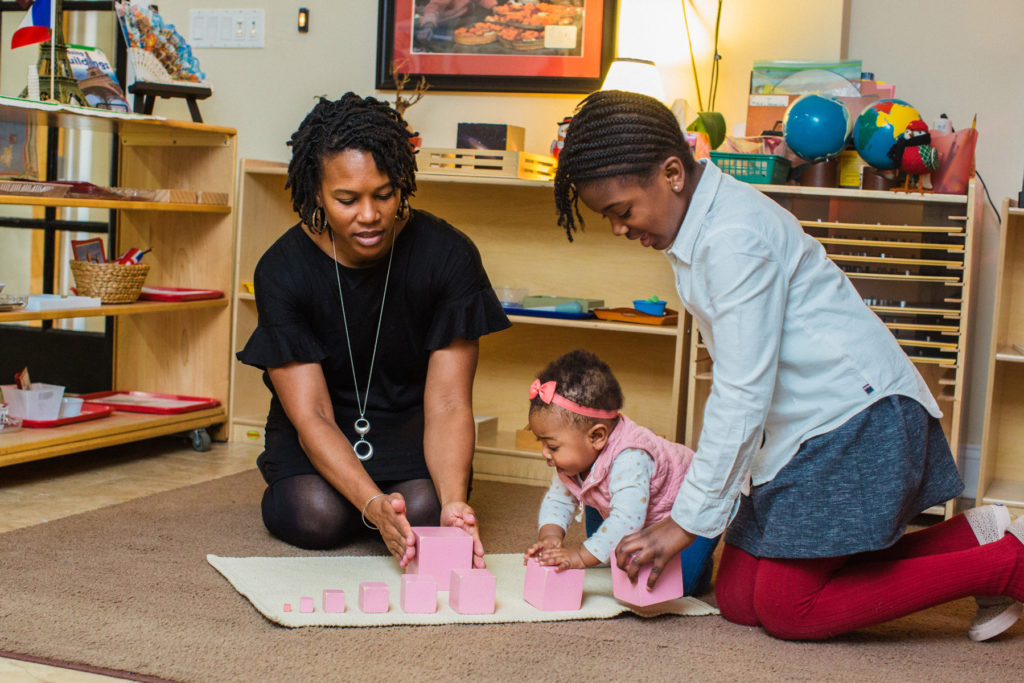
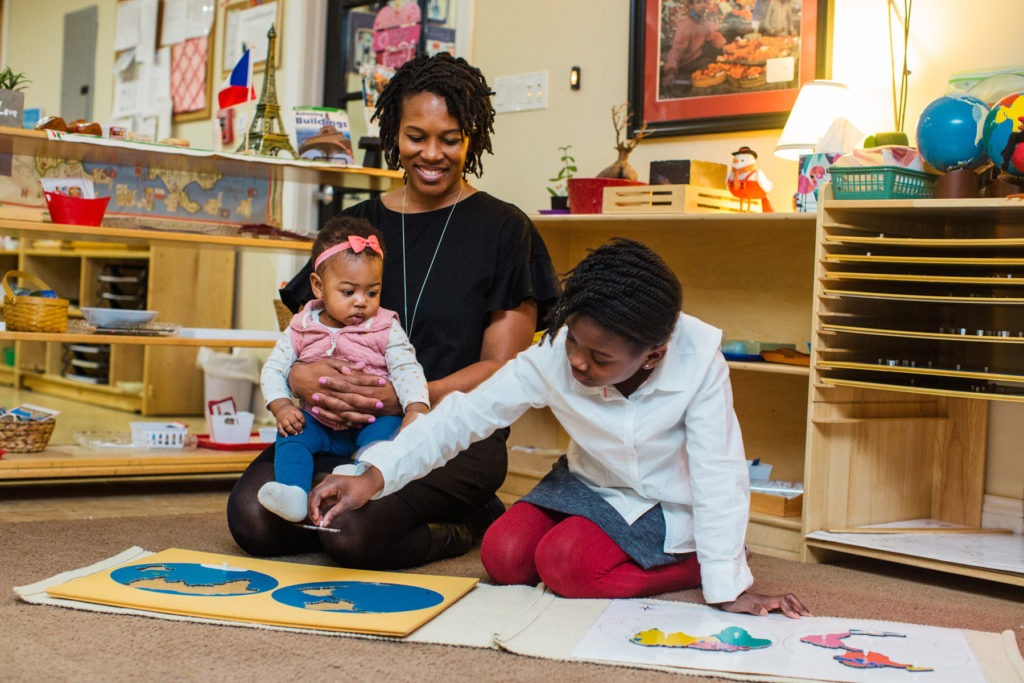
Like every RTC entrepreneur, Ms. Myani signed up for the 12-week, 36-hour Community Business Academy (CBA)—starting in February and finishing in May of 2014. “I loved it because, just like my school, the CBA is so diverse. You have people in there with a PhD and people with a GED and everything in between. It was great. And all of the different jobs, the different career paths that people had, and all the businesses they wanted to start. One lady on my team was a comedian, another person did holistic health, somebody had a food truck, and all these kinds of things. No one in that space treated you like you were crazy.”
Ownership can definitely feel like freedom and flourishing, but it can also feel like you’re “hanging above a wood chipper,” as Alex says.
This is a deeply significant, underappreciated aspect of Rising Tide’s work—the importance of fostering community and connectedness amongst entrepreneurs. While it might sound glamorous to be your own boss, there’s a unique loneliness and isolation that comes with having to be your own biggest believer when you are very likely also your own worst critic or greatest doubter. Ownership can definitely feel like freedom and flourishing, but it can also feel like you’re “hanging above a wood chipper,” as Alex says.
“I’m getting kind of emotional here when I’m thinking about this,” Ms. Myani says as she recalls her first time negotiating a lease for the school building. “I’d never negotiated a lease before. I didn’t know anything about a commercial lease. I was talking to people from Rising Tide, I’m like, ‘How do I do this? What do I do? What am I supposed to be signing here?’ It was just insane. But when I went back to my class, and I was sharing with everyone, they were just so happy for me. People that only knew me for five weeks were clapping! It wasn’t like, ‘Oh, you crazy person, what are you signing a lease for, you don’t know anything about running a school.’ So, every week it was kind of like you get charged up, like ‘Okay, I did this. I took a baby step. I did this, I did that. Even though everybody was doing something different, everybody had a vision—everybody was just cheering for everybody. That was awesome for me.”
It’s the classes in cash flow and management and sales and marketing and contract negotiation that equip the entrepreneurs with the skills they need to wrangle their dream from the clouds. But it is quite literally the community and the network that sustains them as they grind toward a flourishing future.
“We haven’t cracked the nut yet, but I do like thinking about what those relationships might look like across a city, or even across the country, what would a group like that mean?”
Chris Breitenberg
Director of National Partnerships
Endless Ripples
La Shonda Tyree, owner of Nyah Beauty, had been making natural, hand-crafted soaps and teaching workshops for the better part of a decade before she found Rising Tide: “I felt like I was spinning wheels. I was selling, but not retaining money,” she remembers. “I was able to pay a personal bill here and there, but not really able to live off of it. I was at a point where I was trying to decide if I was going to continue, or if I was going to go back and find a job, a 9-5.”
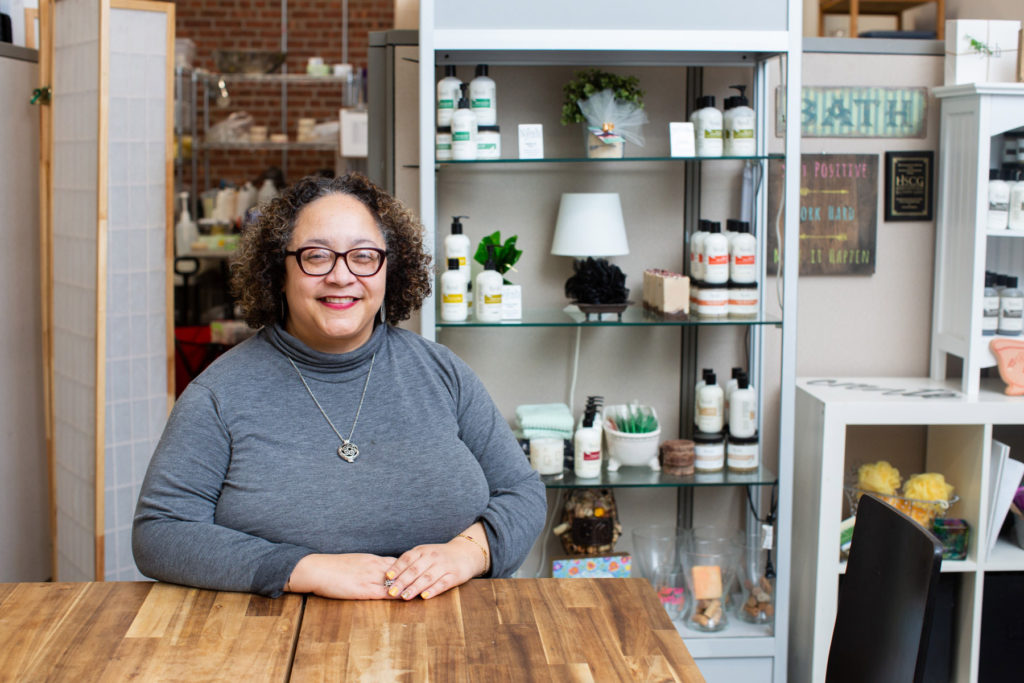
In the Community Business Academy, La Shonda found herself surrounded and led by many like-minds—everyone passionate about a cause, activity, or hobby but unsure of its viability as a profitable, life-sustaining business.
“It’s all the questions, all the things you want to think about as you’re either starting, or as you’re running a business,” explains Chris. “It really exists as like the 101, or the entry way into the rest of our services, which are more customized workshops, coaching, access to capital, things like that.”
And CBA is the crux of the thing—the first step for every aspiring RTC entrepreneur and the core of a packageable model that other cities and partners can adapt for their individual contexts.
“When we started talking about pricing and breaking even, that was the moment where my eyes were opened and I could see I was not charging enough,” remembers La Shonda. In looking at her competition and defining her target customer, she decided to increase the price of her soap by 50 percent.
Very quickly she saw the difference in her balance sheet and was able to start paying herself consistently. “I made that jump and had no kickback whatsoever. I think that was my first, ‘Wow. Okay, I can charge more for what I’m worth, for the value of what I make,” she says.

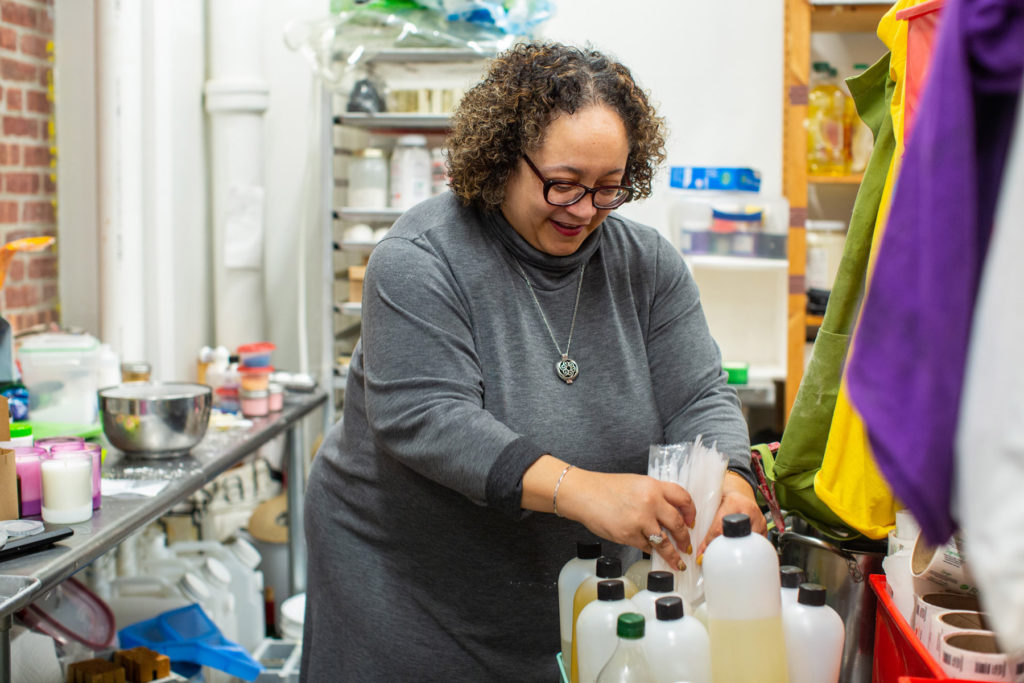
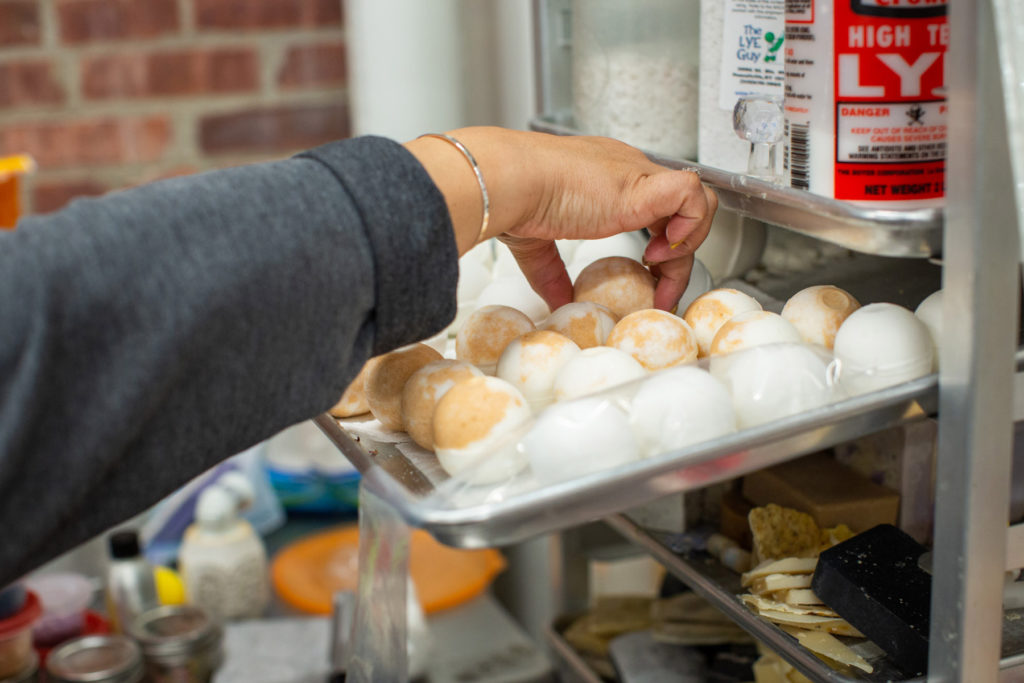
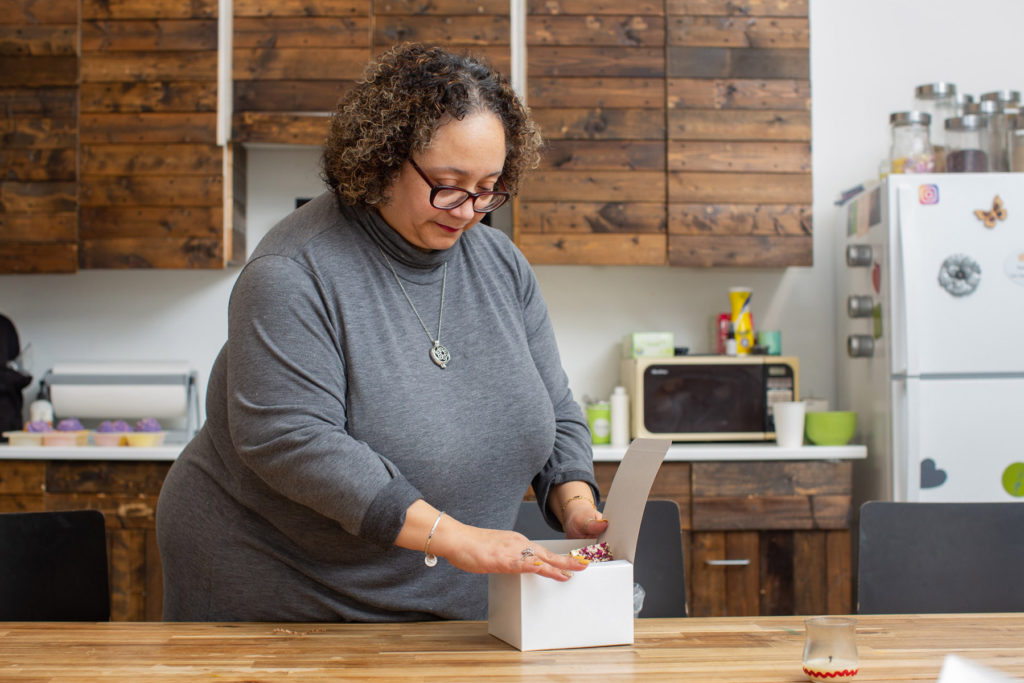
The significance of that basic yet essential achievement cannot be overstated. It’s the difference maker—how RTC entrepreneurs are able to increase their household income by 58% within two years, from $38,966 to $61,514 on average. In general, this is the difference between saving and not, leaving a legacy or a liability, relying on public assistance to patch together sufficiency and not. In 2017, for example, RTC graduates reported a 54% reduction in reliance upon public assistance AND an average 112% increase in business sales, which builds a stronger tax base.
What, on its face, looks like a business training program is, in reality, so much more—poverty reduction, empowerment, and market-shaping all rolled up into one. This building of a more inclusive economy that pulls cities up, communities together and families forward is where hopeful transformation rumbles strong—the tectonic plates of real freedom, power, opportunity and ownership shifting slowly, maybe, finally.
“We’ve always believed that if you want to make a difference in the world, investing in the people that are already moving in that direction and helping them bring others along is a huge and often untapped energy that you could harness and invest in and have a big multiplier effect.”
Alex Forrester
Co-Founder, Rising Tide Capital
“In that first class, people don’t want to leave. The social component is as important as anything, that these entrepreneurs are connecting to each other, that they’re pouring into each other, they’re buying from each other, they’re creating alliances and partnerships together,” says Chris.
And this is a great example: Since moving into her maker-space at Kearny Point, La Shonda has teamed up with Kimberly Sumpter, another RTC business owner turned CBA instructor. Kimberly started her candle-making business, Wax Kandy, four years ago. Even before attending her first class, she competed in RTC’s Start Something Challenge, landing second place and a $7,500 grant.
“It is not just a small business, it’s really a passion,” Kim explains. “One of the most rewarding things that I’ve been able to do is work with a non-profit organization to allow women who have been in situations of domestic violence and abuse to come in and enjoy a day, feel the relaxation—to feel what I feel whenever I make a candle. Offering that to them is something that is more rewarding than anything, any money that I could ever receive.”

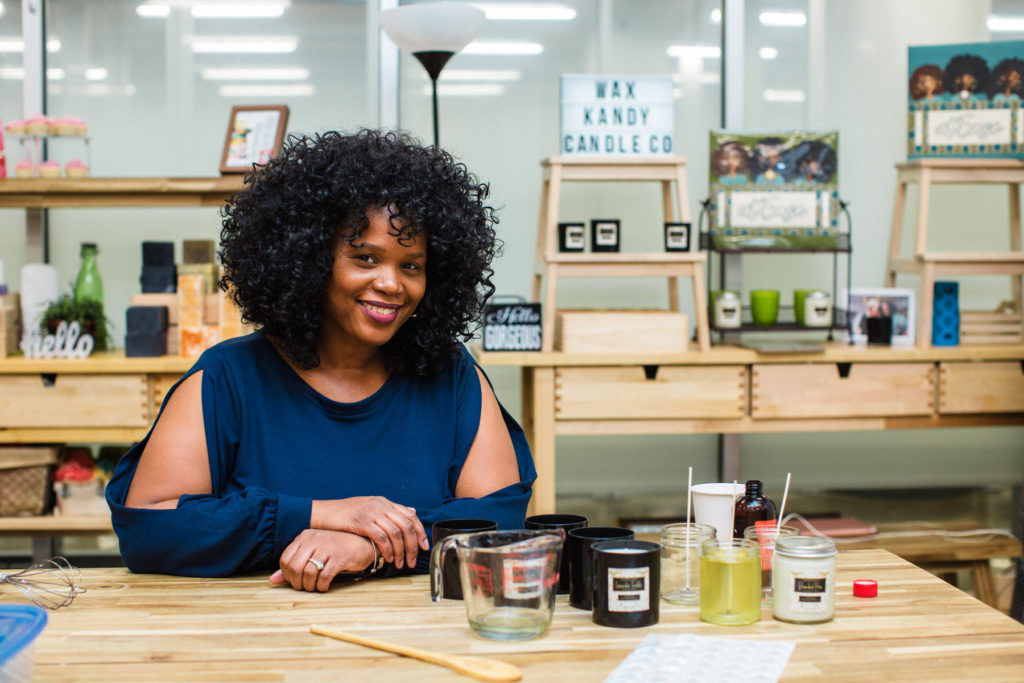
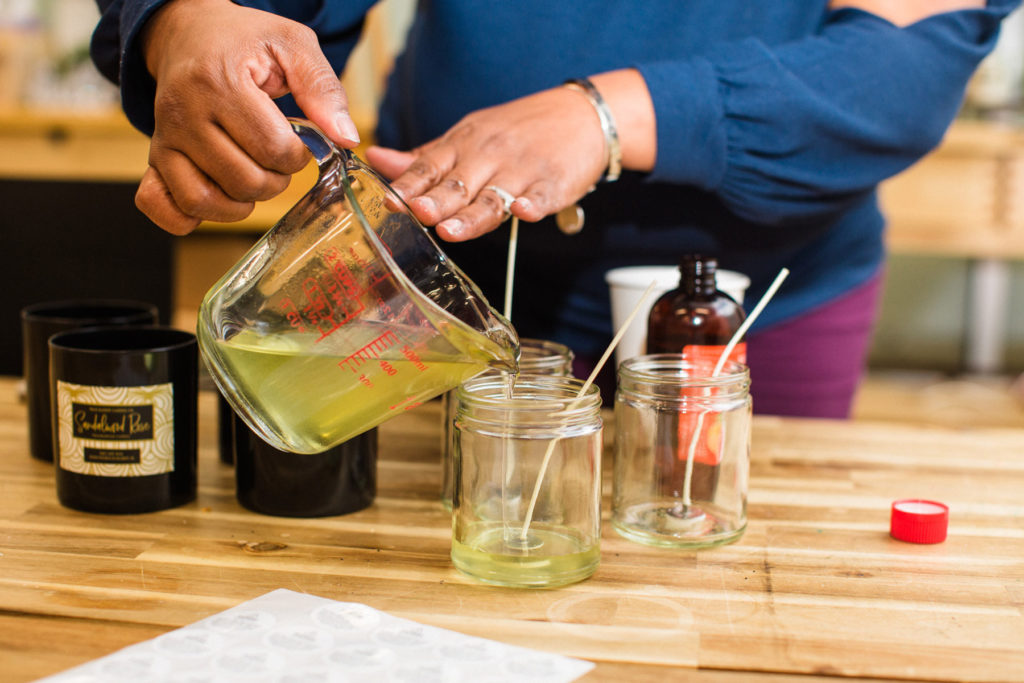
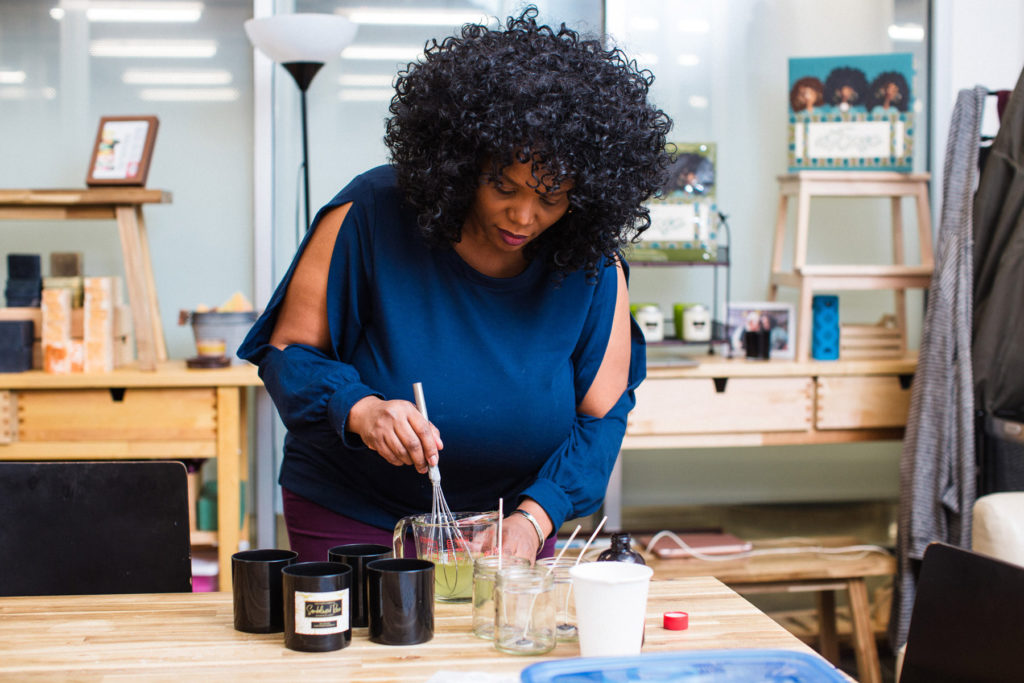
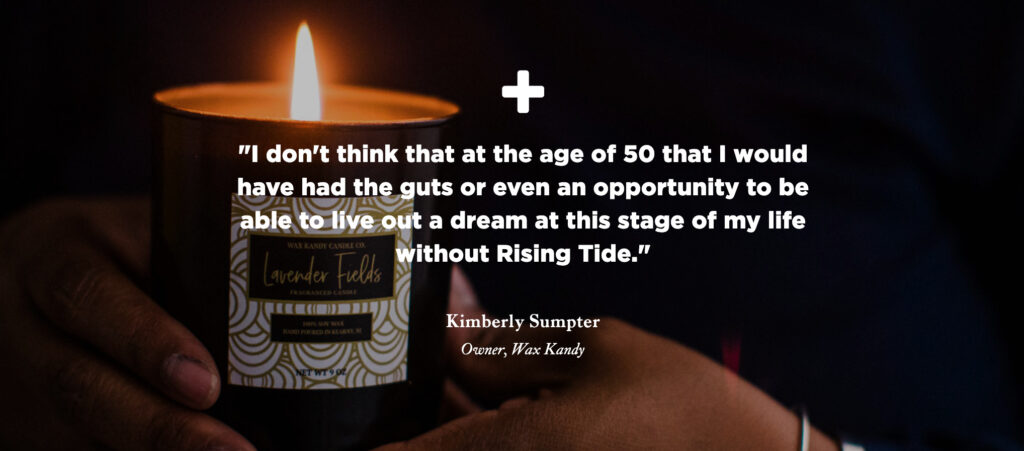
“We’re animated by a vision of success that is not measured in the revenue or the jobs that are created by the businesses. But rather by the platform of transformative power that a business gives an entrepreneurial leader in a neighborhood to begin flowing out into the world around them,” says Alex.
In a very different sector than candles and soap, Java’s Compost embodies this best. Founded a couple years ago by husband and wife duo, Java and Michelle Bradley, Java’s Compost is making it easier for people to waste less. Considering how much garbage gets sent to landfills unnecessarily, there is a big need to make it easier for people to make a different choice.

“We try to get people to do 100 percent of their material and that’s what we’ve been doing at our house for the last couple years,” says Java. “That’s been a lot of fun for me to be able to just throw every single item, to my knowledge, that’s from chocolate cake to turkey dinners, from Thanksgiving leftovers or anything that is not going to go back in the fridge or that’s been in the fridge too long, all of that goes into the compost.”
“This is the natural way that things decay but we’re facilitating it and making it so that you’re not getting raccoons and rats all over the place. That’s a big piece of what we do—try to make sure people know how to keep a backyard system intact and keep it from going bad. ‘Bad’ meaning smelly,” he explains.
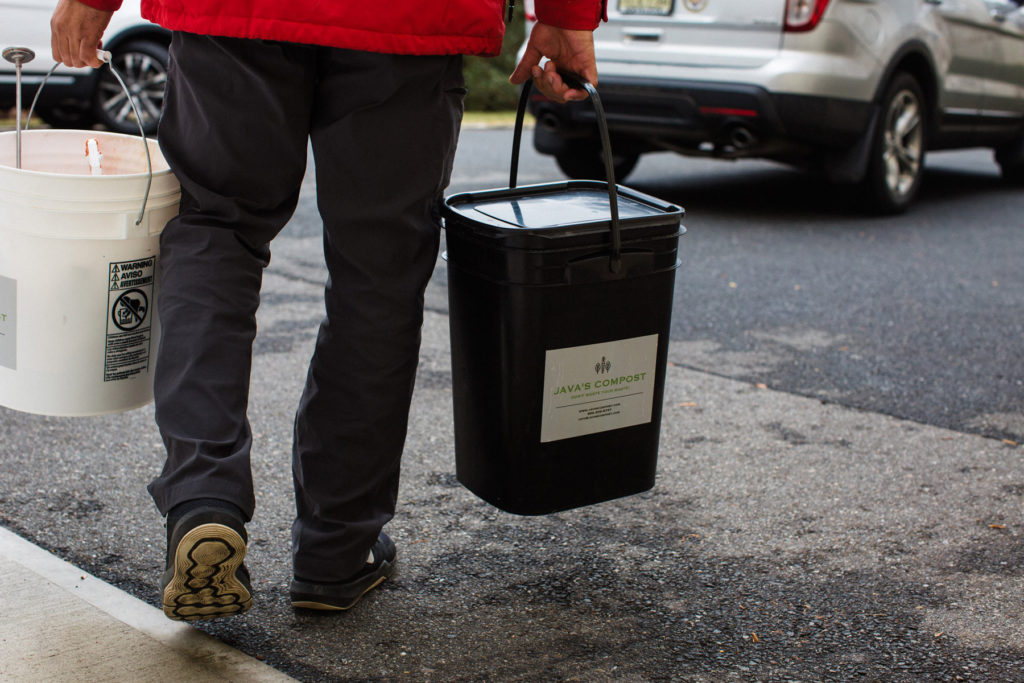
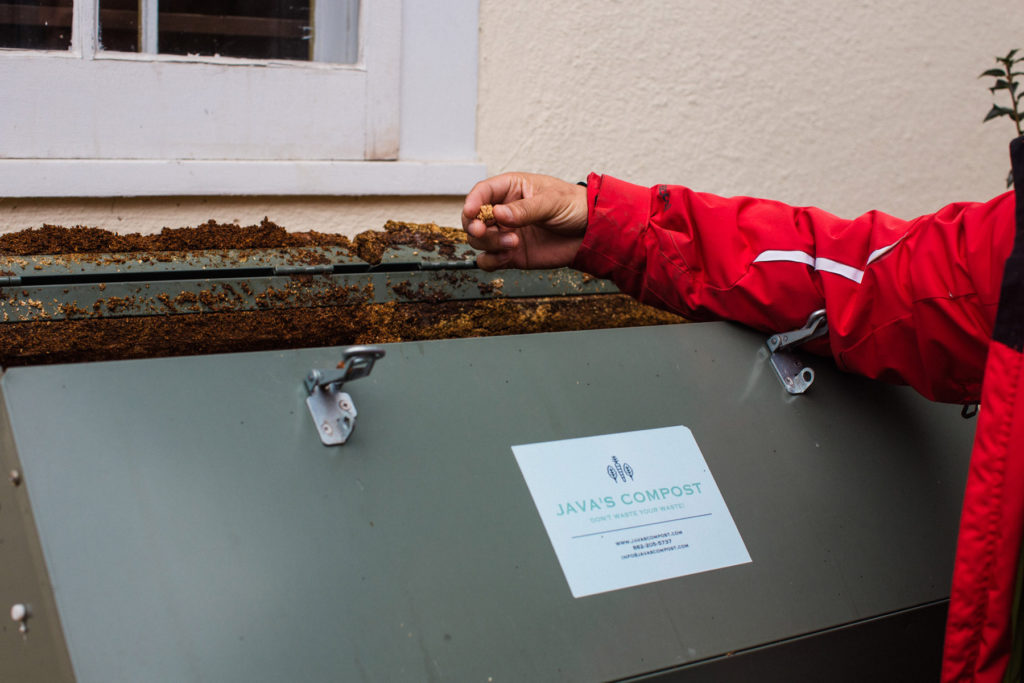
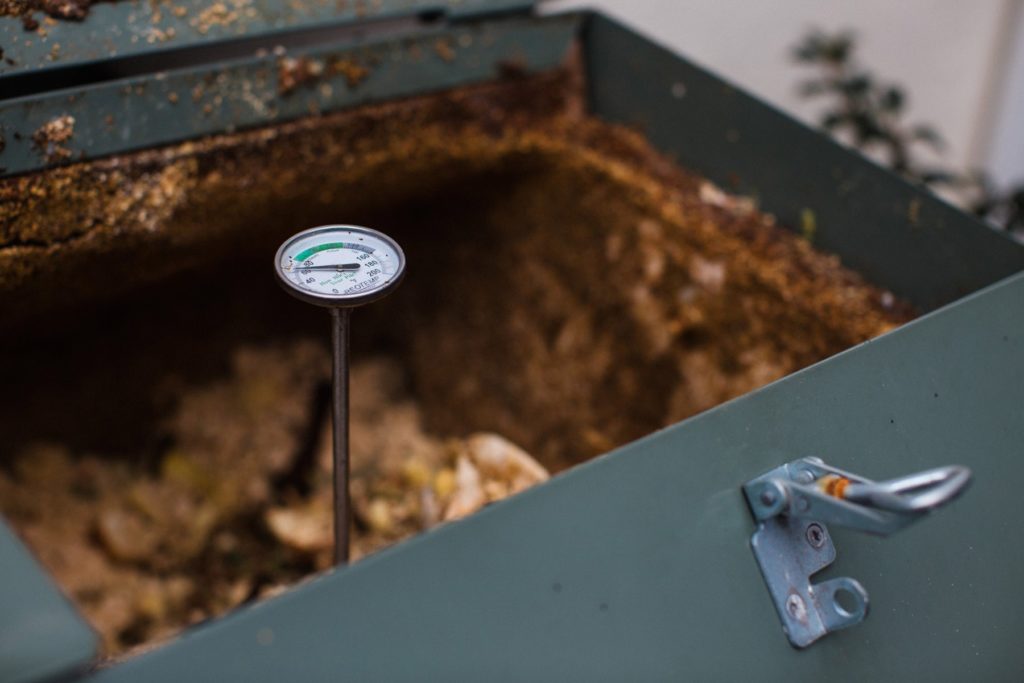
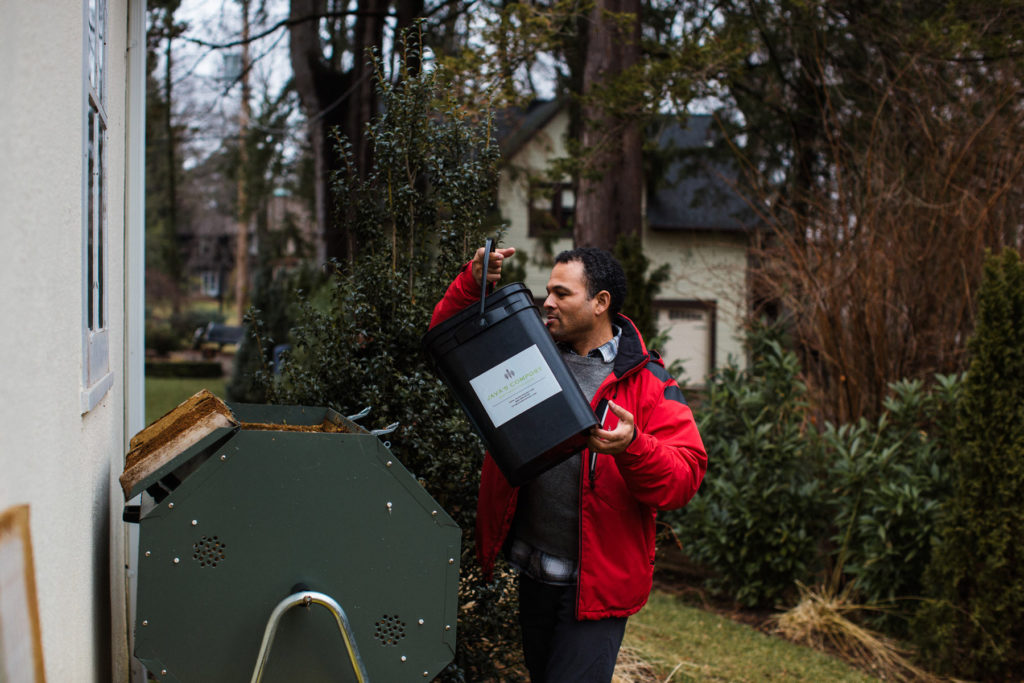
“Do you know anything about compost?” he asks me. I say no, considering the box I built in my backyard doesn’t stink but doesn’t deliver much dirt either. Really it’s more of a dessert bar for the deer and a litter box for feral cats, nothing like the system Java is showing me. This thing is a super chic, pastel green, lockbox of black gold.
“It’s an enclosed, latched environment. You have the browns and the greens—the greens are all your food scraps and your browns are any dry material. Could be wood chips, sawdust, paper bags that are shredded. If you have a proper mix of those things, then it creates an environment that is not going to be smelly,” he says.
“There’s a redemptive piece to it, where you look at it and you see what other people look at as garbage is actually full of living potential. We like to say it’s like giving food scraps a second chance at life and I feel like we all need that. I mean, it seems a little corny but I feel like we all kind of need that.”
Java Bradley
Co-Founder, Java’s Compost
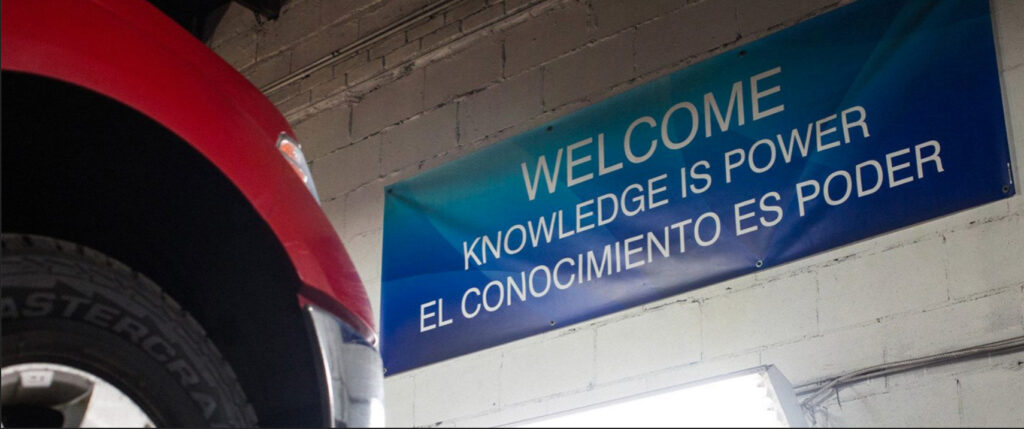
Continuing Classes
Since immigrating from Ecuador in 1999, Hilda and her husband Jose have been working and learning hard to open their own auto repair shop—one with a very unique vision: “We have this idea, my husband and I, to empower women through knowledge, where we teach them basic auto repairs, how to change a tire, about the importance of the preventive maintenance, about the fluids, what is important to change sometimes, and many other things. So, it’s not just a regular auto repair.”
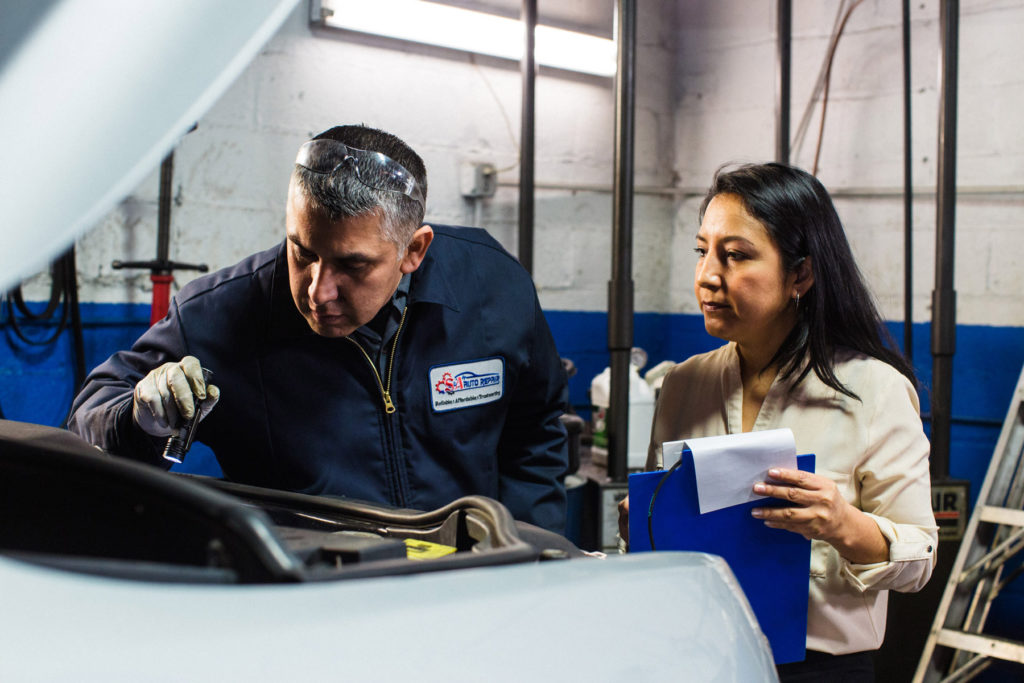
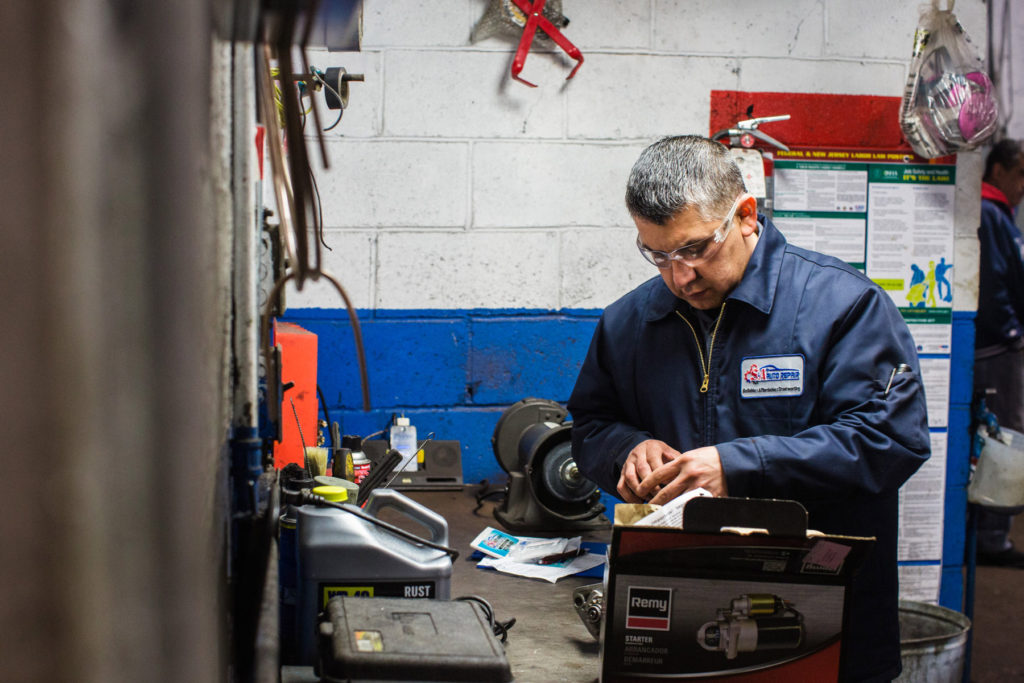
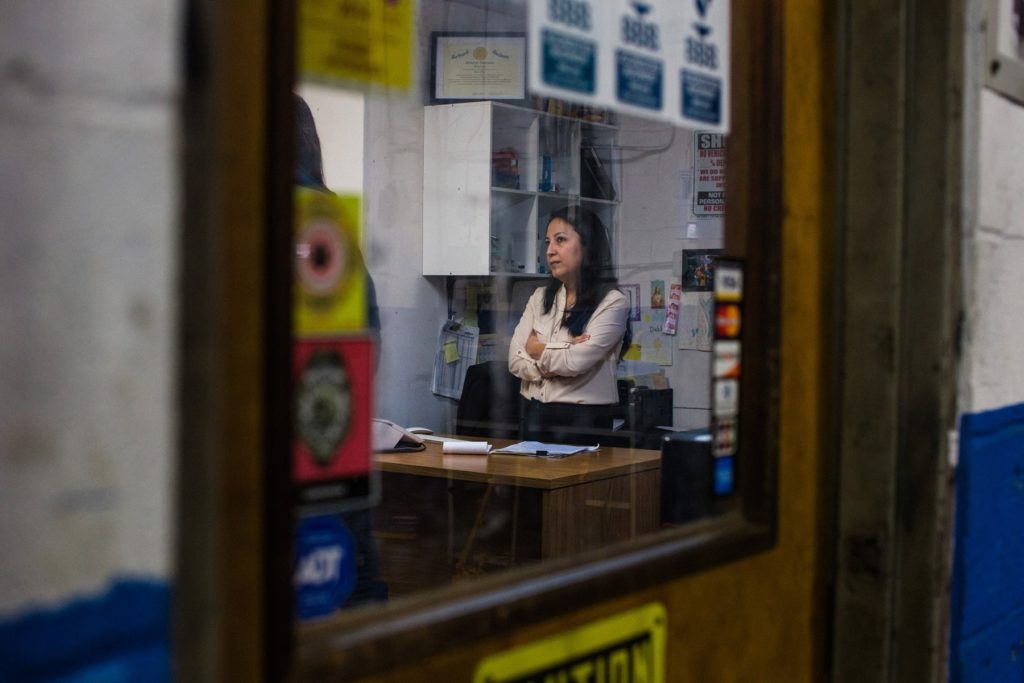
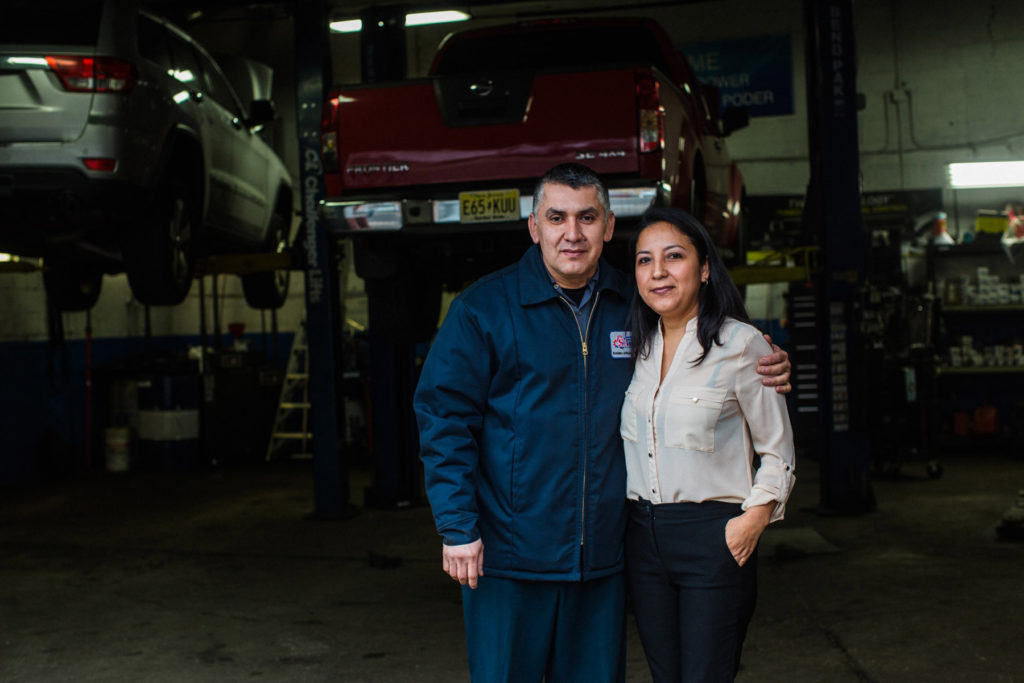
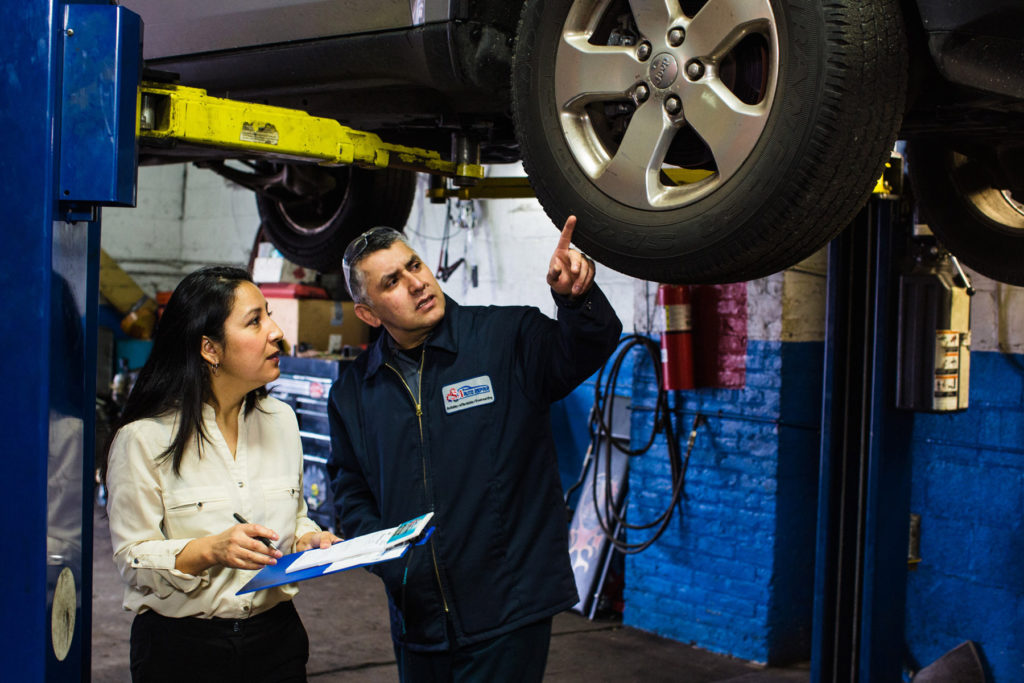
This is a key differentiator and a response to innumerable women visiting the shop in tears after feeling taken advantage of at other shops, saying they don’t trust mechanics. In fact, through her early research Hilda found that 66 percent of people didn’t trust auto shops or mechanics.
Since their very first customer six years ago, Hilda has been taking classes, empowering herself as a business owner: “I took a class about QuickBooks, things that I don’t really like, but it’s just to understand my business, to know if I’m going to the right direction. I just recently took a class with Rising Tide about HR, which is very, very important for our business, and I didn’t know anything about it. I took, also, a class of sales, which helped me a lot, not to be afraid, and to talk, to ask…things that I wasn’t doing. I am a very talkative person, but I wasn’t really saying, for example, ‘Are you happy with my service? Can I have a review?’, which is important for the business. Or going outside and looking for the business, going to sit down with owners of construction companies and things like that, and say, ‘This is my offer. Can we work?’, things like that. I wasn’t doing it. When I took that sale class, I was like, “Yeah, this is what I should do. It’s not like wait for them to come to me, I have to go and look for them.”
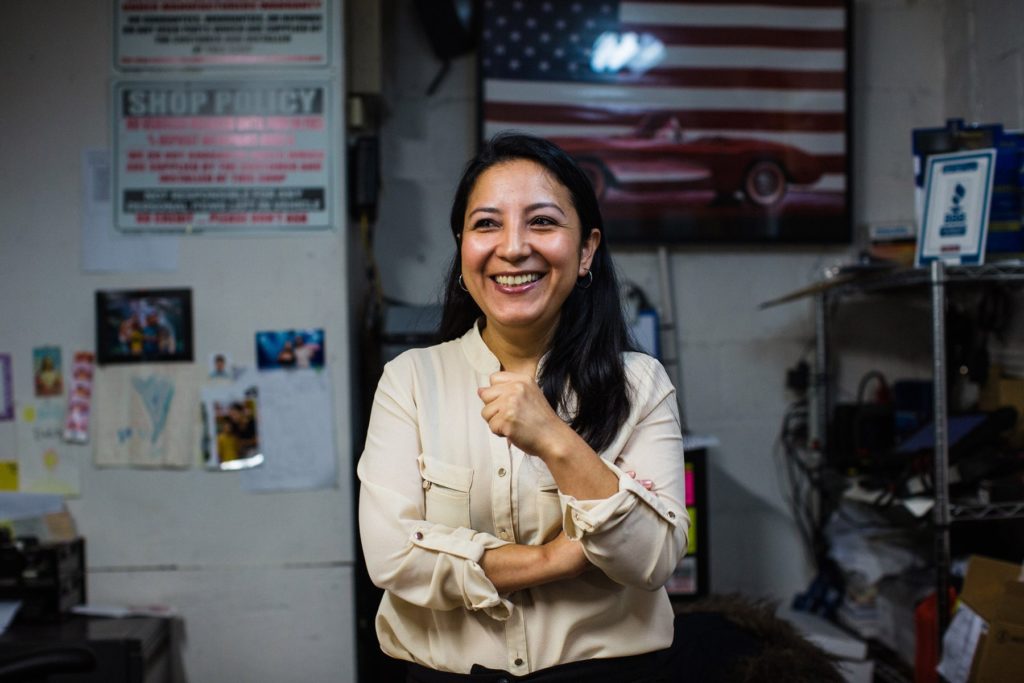
“RTC was a door that opened the rest of the doors. When I graduated from RTC, I started to meet different people, people that wanted to help me. I started finding that there is a world out there. They have helped me in every way.”
Hilda Mera
CEO, S&A Auto Repair
“It’s been a long path to get here. It hasn’t been easy,” Hilda admits. “I am, like I said, an immigrant. I didn’t know how to speak English. I didn’t know anything. I had no knowledge about how to start a business, and I’m here. I’m still here six years, I’m still here. We just feel very, very proud of what we have done.”
“I’m trying to show this to my kids,” says Hilda. “I said to them, ‘Everything, everything, what your father and I are doing now is because we want to leave a legacy for you. We want you to learn and we want you to always see a doorway. Go for whatever you want in life, but not forgetting to help others on your way. It’s not just about you. It’s not just about us. It’s about the rest. It’s about the community.”
“There’s something that comes out of the entrepreneur spirit that is deeply creative—it’s something about love and passion, it’s something about hope, and it has a tangible thing at the end of the day.”
Chris Breitenberg
Director of National Partnerships, Rising Tide Capital
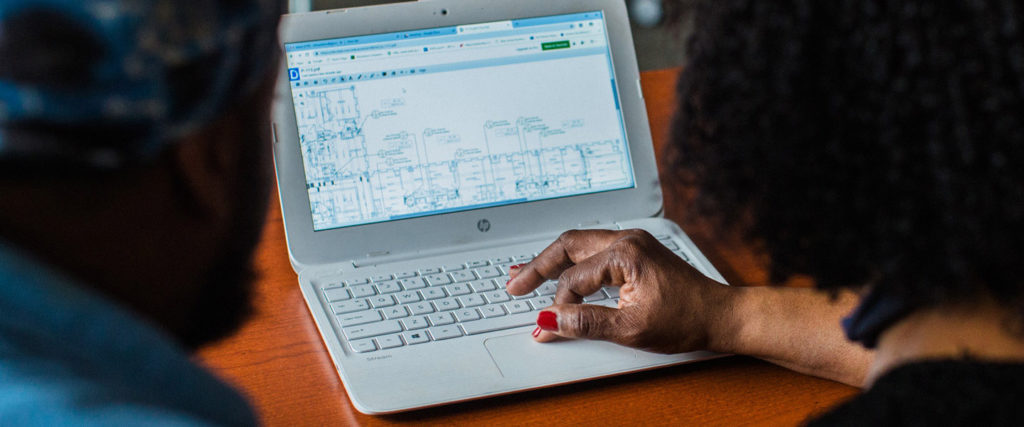
Generational Impact
The effect of entrepreneurialism in a family and community spans generations, and it’s especially clear in the case of Edna and Qasim Rashid, a mother and son who started a business in order to support a big family after profound tragedy.
“My daughter, Naimah, had just nursed me back to health,” says Edna softly. “She was wonderful, you know, a child that every parent would be proud to have. She had two children and had just gotten accepted into the PhD program at Columbia. She was the oldest, and everybody looked up to her. Everybody loved her. She won all kinds of accolades at the job that she was in. We just went to a family gathering and didn’t expect anything, and then, she passed away right in my arms…”
“It was the beginning of a new career. It was the beginning of establishing the legacy that we wanted to do after Naimah passed away.”
Congestive heart failure, it was. “After her death, I had 10 children remaining plus I have all the other grandchildren, and now I’m having her two children by myself, and I still needed to work.” It was a friend from a support group who encouraged her to go to Rising Tide: “I only went because I wanted her to know that I appreciate her, but I didn’t think it was gonna work. And I’m glad I did. It was the beginning of a new career. It was the beginning of establishing the legacy that we wanted to do after Naimah passed away.”
Qasim agrees, “It’s hard to say my sister passing was a blessing, but taking the tragedy and turning it into triumph…I haven’t had to go on the road and work. I’m able to take my son to school every day and pick him up, my daughter as well. My older daughter, she’s going to school in Jersey City actually, and I’m able to experience all of that. Even when I was working in the oil yard, I wasn’t able to experience that much of that because I had to be out of the house so early. So, all those things came together and it’s like my prayers have literally been answered.”
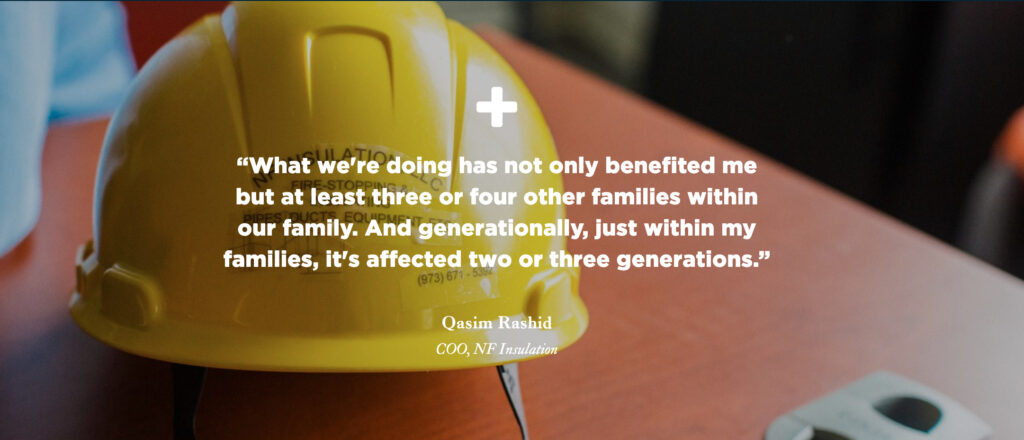
Edna, having undoubtedly gone to the sales class, tells me that insulation is the oldest type of energy conservation: “Pipes that are insulated properly will produce so much energy savings,” she says, “that it will almost in and of itself, guarantee a decrease in gas house emissions and give you a greater energy savings.”
I ask about the growth of the company and some of the larger contracts they’ve won recently. “It took us five years to really get a good job that started to produce like we had anticipated, but it was that strong foundation, the role playing that we did on those Saturday mornings. The beauty of Rising Tide is that it’s not a selfish non-profit: They develop you as a person, 100 percent for the business, for your personal growth, and then they connect you. It’s all about relationships. And so, they open up. It’s like, ‘These are our relationships and you are a part of our family and therefore, they are your relationships.’ And whatever you need, if they don’t have it, there’s someone there to help you find it.”
“The beauty of Rising Tide is that it’s not a selfish non-profit: They develop you as a person, 100 percent for the business, for your personal growth, and then they connect you. It’s all about relationships. And so, they open up.”
“A lot of the people who work at Rising Tide Capital are either entrepreneurs themselves in some way or are kids of entrepreneurs,” Esther explains. “Alfa is a child of an entrepreneur. Alex’s dad is an entrepreneur. I think Chris’ dad is also an entrepreneur. My dad was one too. Roger, our Director of Programs, and our Director of the CBA, same thing. And I’ve heard almost every single person say, ‘If my mom or dad, if they’d had the knowledge, if they’d had somebody to explain to them what breakeven was, or how to file their taxes, or how to keep the business open, where would they be now?”
“It really is Rising Tide Capital. Capital isn’t just money, you know? You could give me money, but if I don’t know what to do with it or if I misuse it, I’m still going to be where I am. But if you put resources into me, you put time into me, you develop the human capital. So that’s what Rising Tide does,” Edna explains.
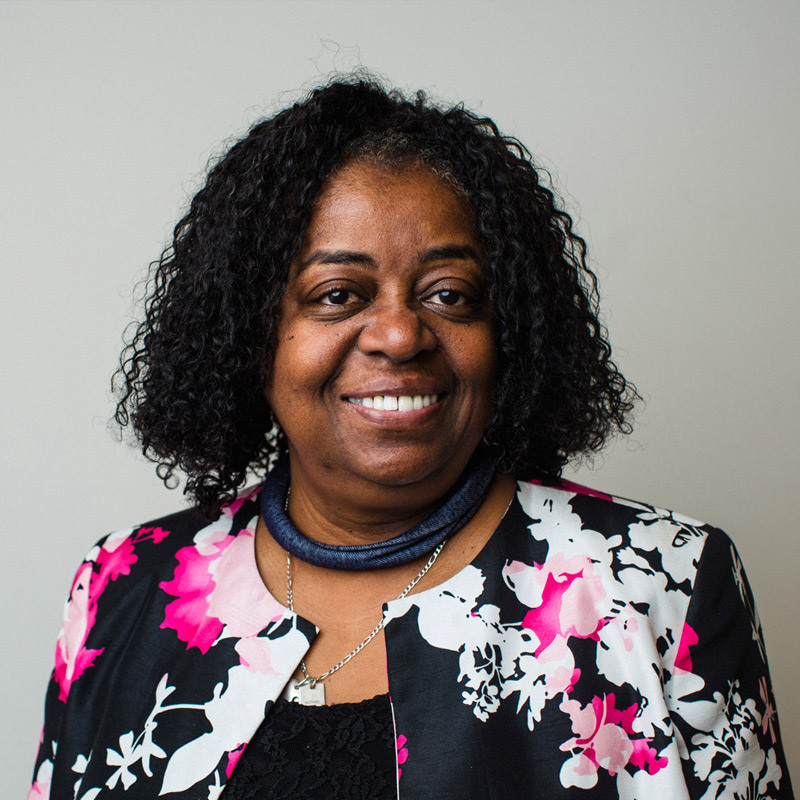
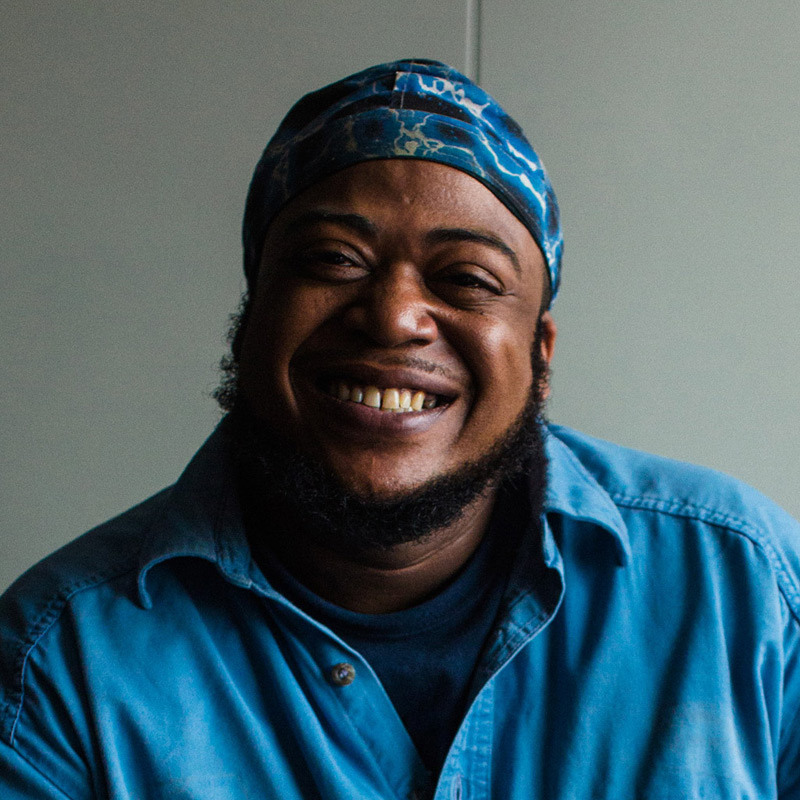
Qasim agrees, “You know, it’s one thing to have money, but there’s another thing to know how to utilize that money. And that’s why I say the classes that she’s taking have been phenomenal. To know where to go, who to talk to, know how to talk to them when you get there. Those are things that are priceless.”
Alex and Alfa have seen it thousands of times: “Community transformation occurs in a few dimensions,” says Alex. “Number one, there is the dimension of the role model function for their children and their nephews and the neighbors. The inspiration and the dignity and honor and respect that that person has in the community. They want their children to see them that way. Secondly, we see them constantly being change agents and leaders in their extended families or in their neighborhoods. This happens over and over and over again.”
“It’s given my children the opportunity to look at what I do and not, you know, with insulation, but reading blueprints and drafting blueprints, communicating with distributors, so on and so forth,” says Qasim
“Seeing the fact that we’re able to inspire people to do what they need, to live their dreams, to find a flourishing that we all want, I think has been really transformative for me. It means that I’m able to build the kind of world that I want my daughters to live in, whatever they intend to do. It means that I’m literally helping to create role models for my children who look like them, and that has just meant the world to me.”
Esther Fraser
Communications Director, Rising Tide Capital
The impact of Rising Tide’s work extends beyond the entrepreneurs themselves, and even beyond the communities that they are shaping and influencing. The full effects will be felt for generations to come, as cycles of poverty are broken, doors opened and a framework for a more inclusive economy established. This is what dreams are made of—The American Dream re-envisioned and actualized in the lives of individual entrepreneurs, their children, and grandchildren. A ripple effect of the Rising Tide.

